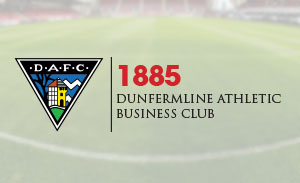Ron Mailer
Friday, 30th Mar 2018Ronnie Mailer: 18 May 1932 – 28 March 2018
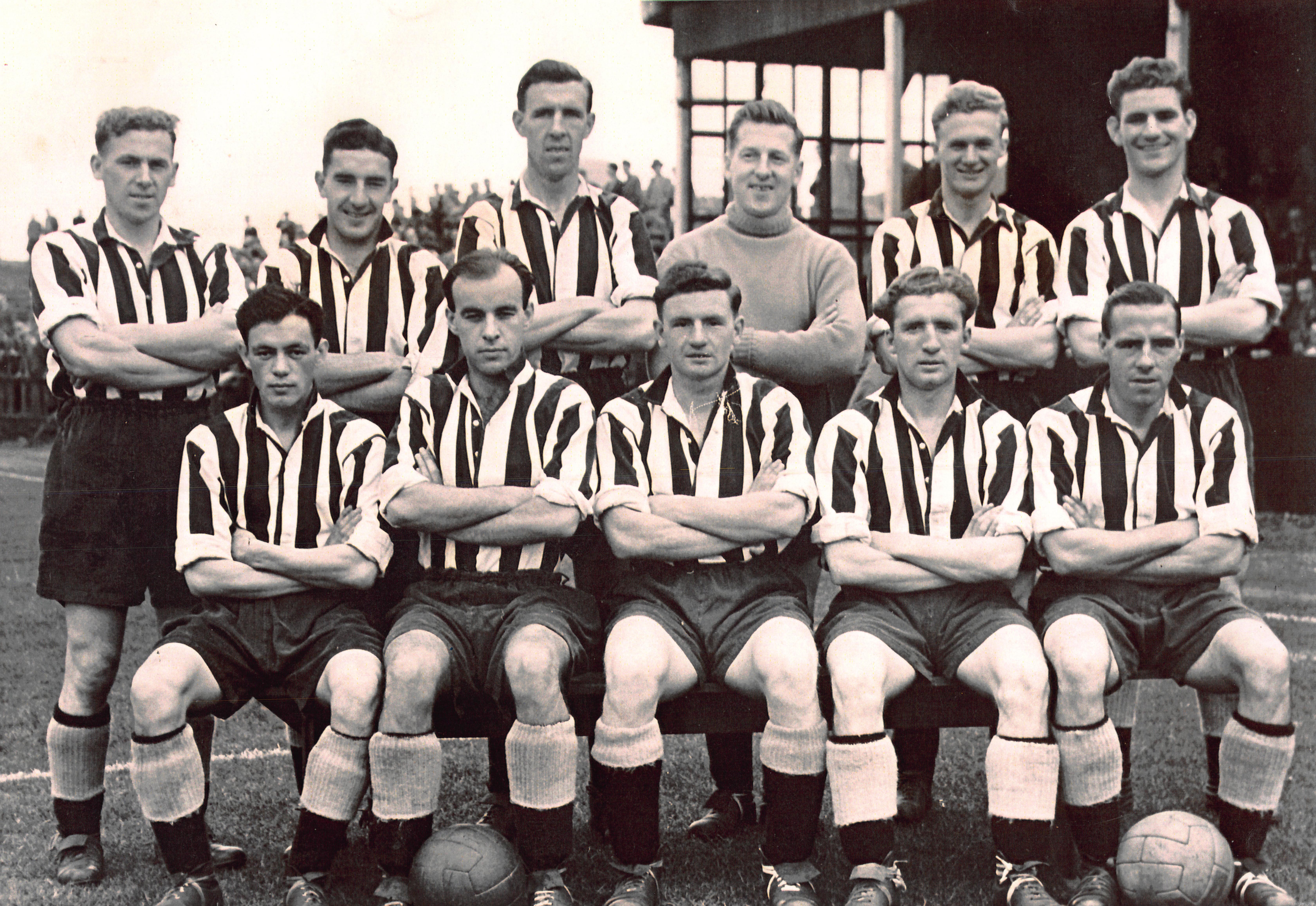
Dunfermline Athletic Football Club was deeply saddened to hear of the passing of one of the greatest players the club has ever seen, the captain of the 1961 Scottish Cup winning team, Ronnie Mailer. Ron died at St Margaret’s Cottage Hospital, Auchterarder, on Wednesday 28th March, aged 85.
When Ronnie Mailer joined Dunfermline Athletic in March 1951, little did he realise that just ten years later he would captain them to their greatest ever triumph – the 1961 Scottish Cup Final.
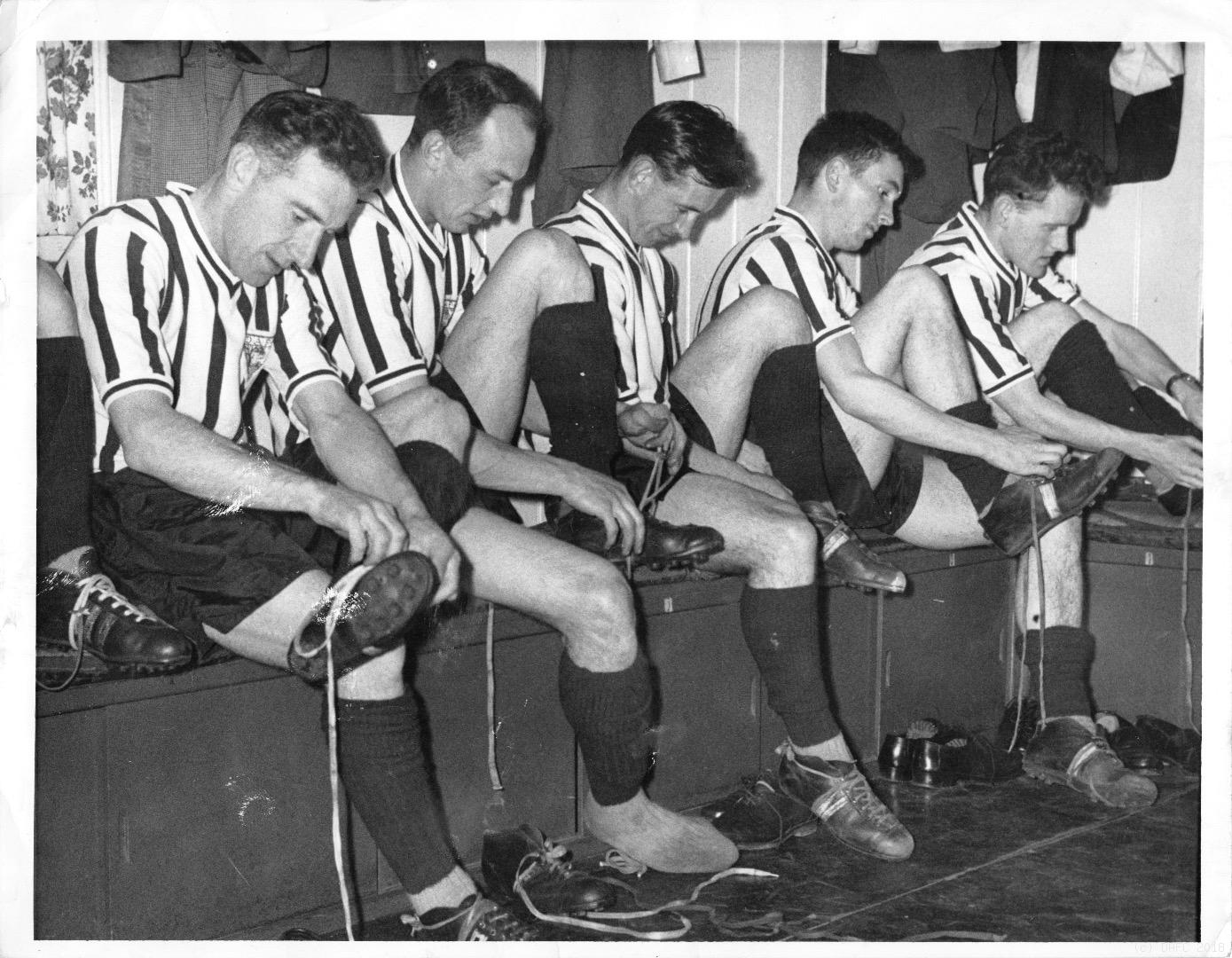
Born in Auchterarder on 18th May 1932, Ronnie was the third child of three in the family. From an early age he was involved in his father George’s joinery business, but he was also proving to be a very good footballer. Ronnie enjoyed success at youth and juvenile level and while playing for Auchterarder Youth Club, Ronnie had a trial for Jeanfield Swifts in April 1949. They were among several clubs wanting to sign him but in June he joined Auchterarder Primrose. Not surprising perhaps since his father was on the committee and his brother Ian was playing at left-half!
Primrose were champions of the Perthshire League ‘A’ Division in 1949/50. On 3 March 1951 he played for a Perthshire Junior Select side against Angus & District. The following week Pars director John Spears watched him play for Auchterarder against Newburgh Juniors and sought to have him play a trial in Dunfermline’s next league match. He made his Pars debut as a trialist in a 5-2 win against Stenhousemuir at East End Park on 17th March 1951. Despite several clubs in England expressing an interest in him, Ronnie decided to remain in Scotland and the Pars manager Webber Lees convinced him to sign for Dunfermline which he did on 31 March 1951.

At the end of that season, the young Ronnie went with the first team squad on a short tour of England during which he scored his debut goal at Gigg Lane in a friendly against Bury on 16th May 1951. In his first full season, the 19-year-old had fought his way into the side making 18 first team appearances. There hadn’t been any goals but that soon changed at the start of 1952/53 season when, remarkably, his official goalscoring debut finished with him scoring a hat trick (his only one) as Dunfermline defeated Alloa in a League Cup match on 31st August 1952.
Ronnie was called up for National Service on 17 September 1953 and thereafter he could only play if he could get away from his duties at Catterick. He travelled home every weekend to allow him to play for Athletic but eventually the travel was too much and he was transferred to Darlington in March 1954 until his service was complete, making 11 appearances and scoring 2 goals. He was demobbed on 14 September 1955 but had been available for week-end games from the start of that season so he made his second debut for the newly promoted Pars against Hibs on 3rd September 1955, and after that never looked back.
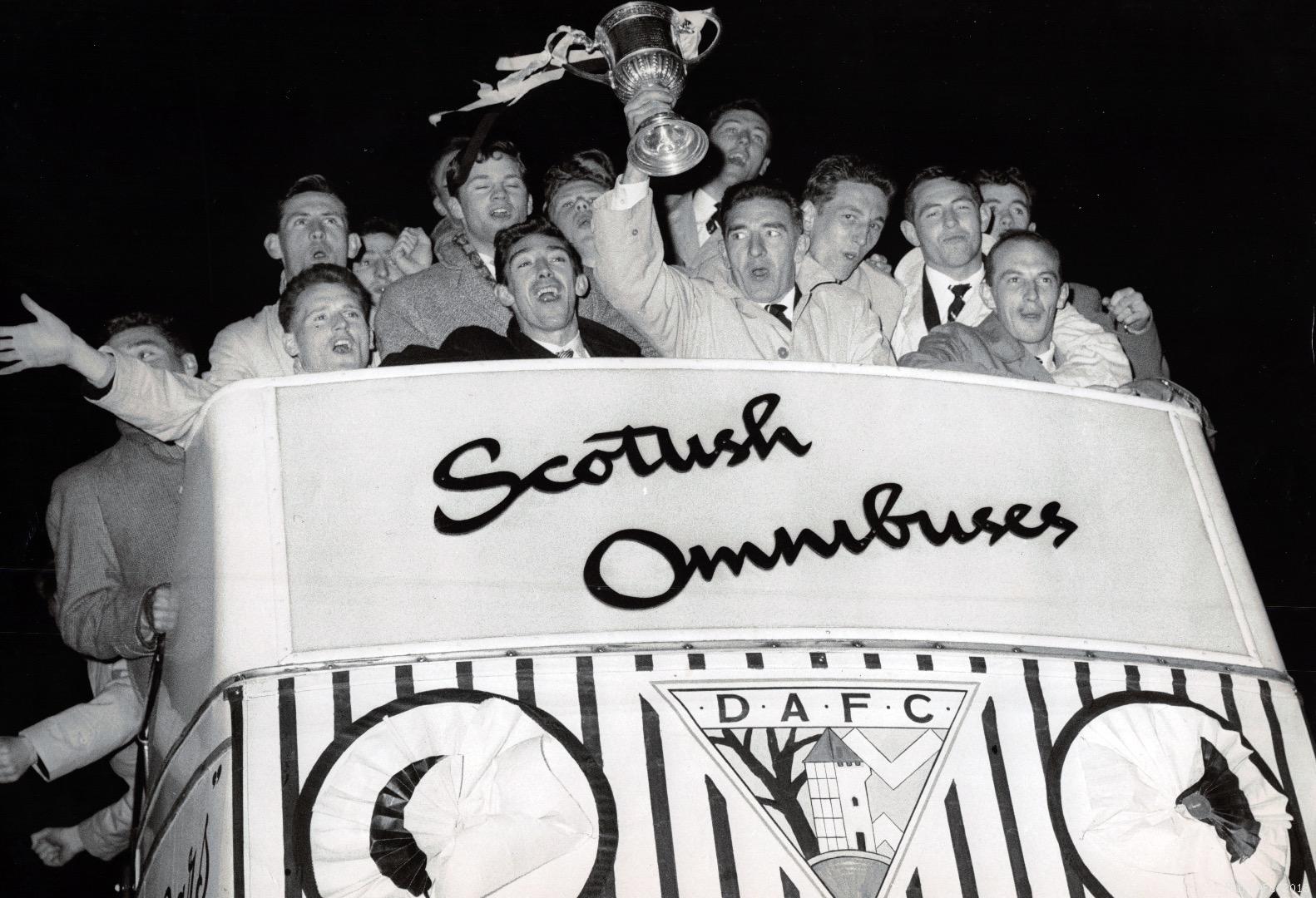
During his first seasons, he was used in a variety of positions. In season 1955/56 alone he played in seven different jerseys – 4, 6, 7, 8, 9, 10 and 11! By the time that Jock Stein arrived in 1960, Ron was one of the most experienced members of the side and under Stein he went on to make the number four jersey his own. Any doubts that Jock might have had about Ron were quickly dispelled in the unbeaten six-game run at the end of his first season. In Stein’s first game in charge, Mailer formed a great defensive partnership with Jim Stevenson to help the Pars to a memorable 3-2 win over Celtic. And as if to show just how versatile he could be, Ronnie scored the goal of this or any other season on 4th April 1960 against a Kilmarnock side that was in the running to win a league and cup double, and on a 21 game unbeaten run. The only goal of the game came when Ronnie crossed the halfway line and let fly with a rocket shot from forty yards past a startled keeper.
Jock Stein made him his captain for the Cup Final in 1961 and Ronnie didn’t disappoint, bringing the Cup home to a delighted Dunfermline. That success brought European football to Dunfermline for the first time and Ronnie made six appearances in European competition over the next two seasons. He was in Budapest playing Ujpesti Dozsa in February 1962 when his first daughter Alison was born and the team managed to toast that event with drinks of orange juice!
At the end of 1963, Ronnie decided to hang up his boots, only to be convinced to hang on to help some of the younger players through. But he did make his final appearance for the Pars on 4th April 1964, less than one week after Jock Stein had moved to Hibs.
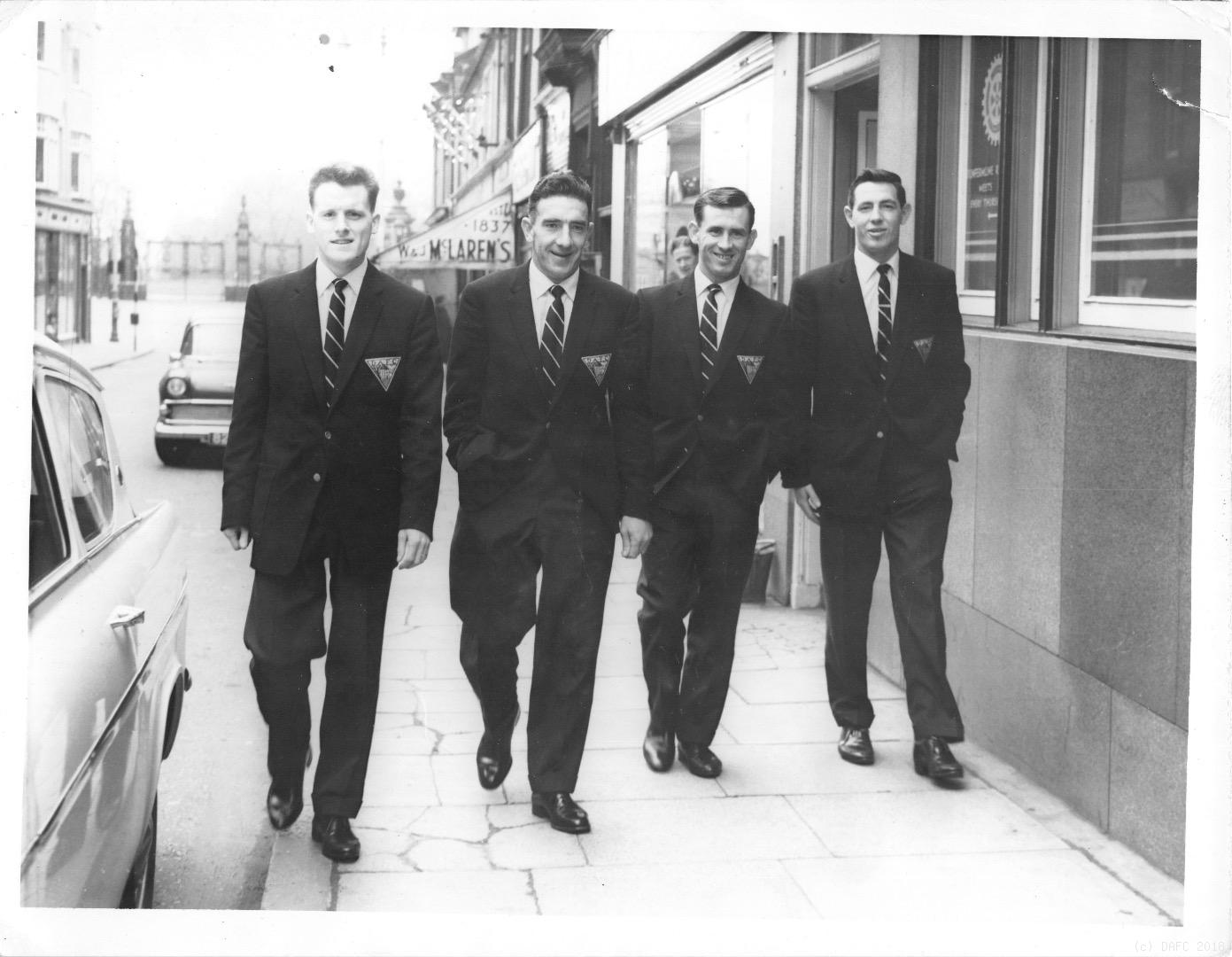
Stein and Mailer had been a fantastic combination and Ronnie had always had the highest regard for Jock Stein so he was never going to hang about for long after he left. In any case, the family business was calling and he knew that he simply didn’t have the time to devote to football any more.
For Ronnie, life after football was simple. He married the love of his life Cynthia in 1959 and by the time he retired from football he had two young daughters – Alison, and Gillian born in 1964. But it also allowed him more time to play the other love of his life – golf. Ronnie slept and breathed golf – he started playing at the age of four and became a very good 2-handicap golfer. Even at the end of his life, and during the recent years when he has been suffering from dementia, Ronnie loved nothing better than looking out of his window at home on to the second fairway at Auchterarder Golf Club to see who was playing that day.
As well as his golf, Ronnie liked nothing better than holidaying abroad. Surprisingly perhaps, Ronnie never got involved in professional football after his playing retirement, but he always enjoyed his regular visits to East End Park to watch his beloved Pars play.
He also enjoyed the love of his growing family with five grandchildren and more recently one great-grandson arriving. Very sadly tragedy struck the family in December 2016 when Ronnie’s daughter Alison died after a battle with leukaemia.
In football, Ronnie Mailer was essentially a one-club man and he served Dunfermline Athletic with distinction for thirteen years. Amazingly only two of those years were spent in full-time football which he only took up in season 1960-61. He was a very modest man but, quite apart from being a decent footballer, he had some particular qualities that set him apart from others. For a start, although he wasn’t big in stature, he was physically strong. He made a hobby for himself of keeping fit and even after he retired he kept running, cycling and swimming until a very good age. It was that physical condition that meant he was never bullied on the park and that, and his ability to tackle, made him a formidable opponent.
But it was perhaps another attribute that made him stand out from the crowd and that was his mental toughness. He had a steely determination that made him a fighter to the end, and it was that kind of quality that made it easy for Jock Stein to single him out as his captain.
Ronnie Mailer will forever be remembered as the man who led Dunfermline Athletic to their first Scottish Cup triumph in 1961. Ronnie said afterwards:
“That victory was the climax of my career. Never in my wildest dreams did I ever think that I would be standing at Hampden with the Scottish Cup in my hands. I will never forget the reception we received when we arrived back in Dunfermline and the tremendous support we had during our Cup run.”
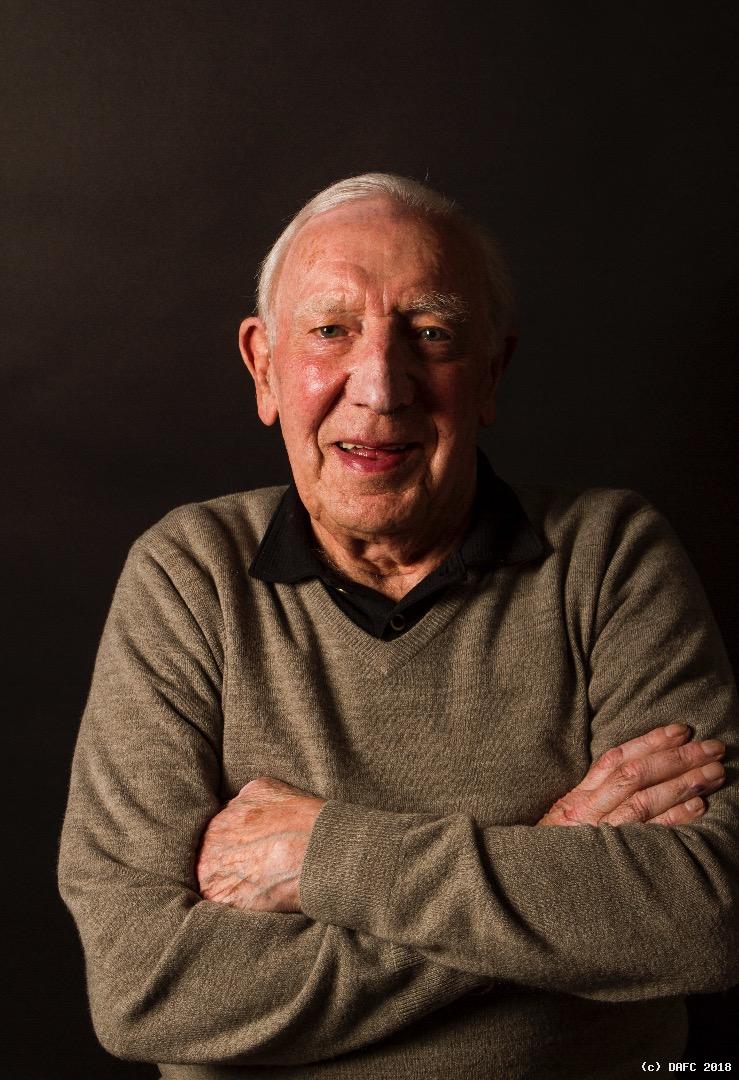
In all Ronnie made 325 appearances for Dunfermline, scoring 32 goals. He was awarded a testimonial when Dukla Prague, boasting a host of international players, visited on 24th November 1965. It was a fitting end to a marvellous career. In 2004, Ronnie Mailer was inducted into the Dunfermline Athletic Hall of Fame at its inaugural reception.
The thoughts and condolences of everyone associated with Dunfermline Athletic Football Club go to wife Cynthia, daughter Gillian and partner Scott, to Ronnie’s grandchildren Tasmin, Rachael, Calum, Christopher and Jennifer, and to three-year old great-grandson Finley.
Views : 9,198


